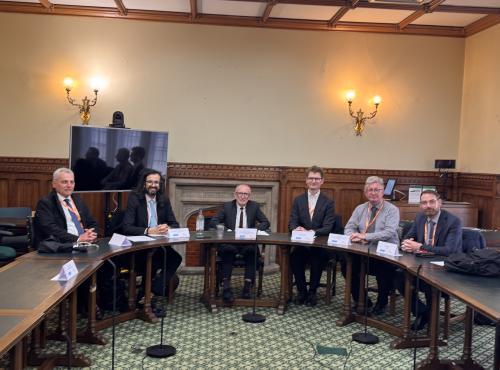Policy win: Ofgem improves vulnerability strategy
The Office for Gas and Electricity Markets (Ofgem) have responded to a recent Policy Connect consultation submission and made several improvements to its Consumer Vulnerability Strategy that will advance carbon monoxide (CO) safety.
The updated strategy was published on 25th October and follows an extensive consultation process organised by Ofgem over the summer. This consultation was the subject of a Parliamentary event hosted by Policy Connect in July, which featured an exclusive briefing from soon-to-be Ofgem CEO Jonathan Brearley and Executive Director Mary Starks.
This briefing, alongside a 2018 roundtable on CO and vulnerability, informed Policy Connect’s submission to this consultation, and we’re happy to report that many of our recommendations have been integrated into the updated strategy.
Firstly, Ofgem has adopted our recommendation to increase the amount of data on vulnerable customers being shared between utility companies. This follows concerns raised by stakeholders that limited data sharing makes it harder to deliver vulnerability schemes such as the Fuel Poor Network Extension Scheme (FPNES), which are essential in addressing the root causes of CO poisoning. To address this, Ofgem will explore ways of facilitating increased data sharing between the energy and water sectors after the strategy’s first year.
Secondly, Ofgem has agreed to increase its engagement with the Department for Business, Energy & Industrial Strategy (BEIS) to ensure Ofgem’s strategy is harmonised with broader Government social policy. This comes in response to two of our policy recommendations:
- Ofgem should work with BEIS to establish formal links between the FPNES and Energy Company Obligation (ECO), as this will facilitate a more joined-up approach to fuel poverty; and
- Ofgem should explore the prospect of reintroducing social tariffs when feeding into BEIS’ updated Fuel Poverty Strategy for England.
Finally, we’re glad Ofgem continues to agree with Policy Connect that RIIO-GD2’s £30 million ‘use-it-or-lose-it’ allowance should be made available for the creation of new partnerships with third-party organisations working with vulnerable people. The effectiveness of such partnerships in improving the targeting and uptake of schemes like the FPNES was a core theme of our vulnerability roundtable, and we are excited to see what new partnerships will be formed using this finance.
If you’d like to learn more about Policy Connect’s work on consulations then please oliver.buckley-mellor [at] policyconnect.org.uk (get in touch).




